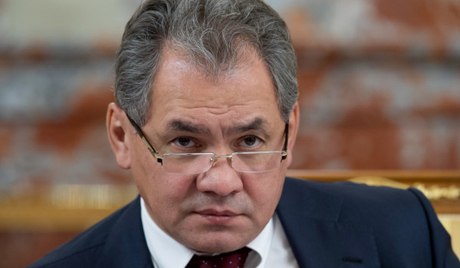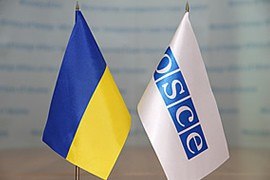In recent weeks, some analysts have started to argue that the military reform promulgated by Anatoly Serdiukov over the last four years is being systematically rolled back by his successor. Given the unremittingly hostile coverage of Serdyukov and the decisions he made during his tenure, this is not surprising. This perception is further strengthened by the rhetoric and stream of decisions emanating from the Russian Ministry of Defense itself. As one analyst recently noted, "[Defense Minister] Shoigu's three-month tenure consists of little more than examining and questioning every decision made by Serdiukov." If you listen to the statements coming out of the MOD and the vast majority of the commentary in the Russian press, you would certainly have the impression that every change that Serdiukov enacted during his years in office has either already been overturned or will be reversed in the near future.
I want to correct this impression. What we have right now is a situation with a number of potentially negative developments, but no real indications that the key aspects of the reform are about to be reversed. It is true enough that Shoigu has reversed a number of Serdyukov's decisions. But (with the exception of defense procurement, which I'll address separately) these changes have largely focused on relatively peripheral issues such as military education and medicine. In the education sphere, Shoigu has restored the old training system that has top officers in school for a total of eight years during their careers instead of Serdiukov's Western-style system of one stint in a military academy followed by short courses to gain skills needed for specific positions. This is certainly a blow to modernization, and may well lead to an excessive number of graduates coming out of the military academies without positions available for them. This outcome could lead to pressure to increase the number of officers in active service, which would be a big blow to the reform effort. So it may be worth watching the number of students being admitted to the newly reformed academies in the next year or two. Similarly, the shift in control over military training from the military branches to the recently reformed Main Combat Training Directorate will leave the branch headquarters with little to do. Aleksandr Golts is concerned that they will start getting involved in commanding the troops, which used to be their bailiwick but is now under the Unified Strategic Commands. Again, a potentially negative development, but not one that has happened yet.
The one critical area where bad things have already happened is in military procurement. I'm of the school of thought that believes that one of the main reasons that Serdiukov was removed is that his policies were threatening the income streams of key players in the defense industry. It is therefore not at all surprising that one of the Shoigu-led MOD's early acts was to essentially take imports of military technology from foreign sources off the table. As I've already written, this will ease pressure on domestic defense industry to improve quality of production while keeping prices from spiraling out of control. As a result, the procurement of a new generation of military equipment in the quantities needed for the military is likely to be imperiled.
Other than in procurement policy, the key structural elements of the reform remain untouched. These include the shift to a three-tiered organizational structure for the military with the brigade as the key unit, the establishment of unified strategic commands that are designed to enhance inter-service cooperation, the reduction in the number of officers, and the goal of shifting away from conscription to a primarily contract-based manning structure over time. As long as they remain in place, the Russian military will remain on track to be transformed away from the Soviet mobilization army to a more modern, more mobile, and more unified military force. According to Golts, all of these elements have recently been affirmed by the country's top political leadership and by top officials at the MOD. Golts further argues that the new defense plan recently presented to the president by Shoigu and new Chief of the General Staff Gerasimov, if it's as comprehensive and thorough as described in the media, could only have been prepared under the direction of Serdiukov and Makarov. There simply has not been enough time to prepare anything serious in the three months since Serdiukov was fired.
It's certainly possible, as Golts and other commentators have indicated, that Shoigu will come under increasing pressure from the old-school career generals to repeal those aspects of the reform that are, to me anyway, the core of transforming the military into a 21st century fighting force. Golts argues that because Shoigu has been made an army general, he will not be able to withstand the pressure to do whatever the generals want. An alternative (and not contradictory) argument, also made recently by Golts, is that Shoigu is likely to accede to the generals' desires because he does not expect to the stay at the MOD for long and will therefore do whatever the generals ask of him. These are both possibilities. And the indications for the future of military reform, given Shoigu's initial actions, are certainly not positive. But I have not yet seen anything definitive that would cause me to assume that Shoigu is going to reverse the structural aspects of the reform. I would therefore urge caution in reading any analyses that argue that Russian military reform is dead.
Dmitry Gorenburg is a Senior Analyst at CNA blogging for PONARS Eurasia on military and security affairs in Russia and Eurasia. This comment is also available on Russian Military Reform.











